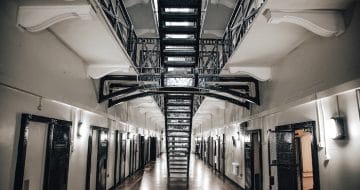Announces even more constitutional changes

It reads like an essay competition.
The Lord Chancellor Robert Buckland wants to restore the concept of the ‘rule of law’ to what he sees as its proper place. As part of his push for sweeping reforms, including of judicial review and the Human Rights Act, he argues that the rule of law is a concept of “political morality” but that it “must be above party politics”. Discuss.
Citing the furore over the Internal Markets Bill last autumn when the government was widely accused of attacking the rule of law because the bill modified provisions of the withdrawal agreement with the EU (you may remember this was the bit where the government said it was only breaking the law in a “specific and limited way”), at a UCL conference last week, Buckland said:
“Some of the arguments around it were political ones …[and] observations about the rule of law soon descended into allegations of ‘breaking the law’ which is an entirely different thing!”
Buckland argues that the rule of law has been subject to “conceptual creep”, is “open to hijack from politically-motivated interests”, and that his job is to ensure that “the rule of law itself cannot be misused to in effect weaponise the courts against political decision making”.
Much has been written about what the rule of law is and isn’t (and most students will grapple with it in their first year of uni), but it has never been absolutely defined. Though a few have tried, such as Lord Bingham. Indeed, the Bingham Centre for the Rule of Law (set up by him) has even compiled a comic-style video to try and explain what it is:
It looks like the Lord Chancellor is certainly on a mission to get through the constitutional wish list set out in the manifesto of 2019. We are expecting judicial review legislation following the government appointing a panel to write a report on it which they published in March but which was then weirdly sidestepped by a subsequent consultation.
Buckland is now also talking about changing the role of Lord Chancellor itself. At a number of recent public appearances, he has taken the opportunity to talk about how the role used to be a “linchpin” between the three parts of state: the executive, judiciary and legislature, until 2005 when the position was pulled apart by the Labour government in the Constitutional Reform Act of that year, and brought to an end the Lord Chancellor’s role as head of the judiciary (the judicial role) and speaker in the House of Lords (the parliamentarian role). He wants to re-examine the 2005 changes and see: “whether there is scope to clarify its responsibilities to make it more workable in the future.”
There would be considerable support from the legal community for reform, properly done, as concerns have been raised over the current state of affairs. For instance, barrister Jake Richards recently put forward a strongly-argued case for the need for a Lord Chancellor with the power to be a “necessary protective force” in Prospect Magazine last year.
The Secret Barrister tweeted his agreement:
This is an outstanding piece on the diminution of the role of Lord Chancellor. The constitutional guardian of the rule of law is nowadays too often appointed on the basis of political obeisance & willingness to stay silent as ministers attack judges. Our country needs better. https://t.co/GTZluU44V9
— The Secret Barrister (@BarristerSecret) May 16, 2020
We’ll have to wait to see what busy Buckland comes up with.


